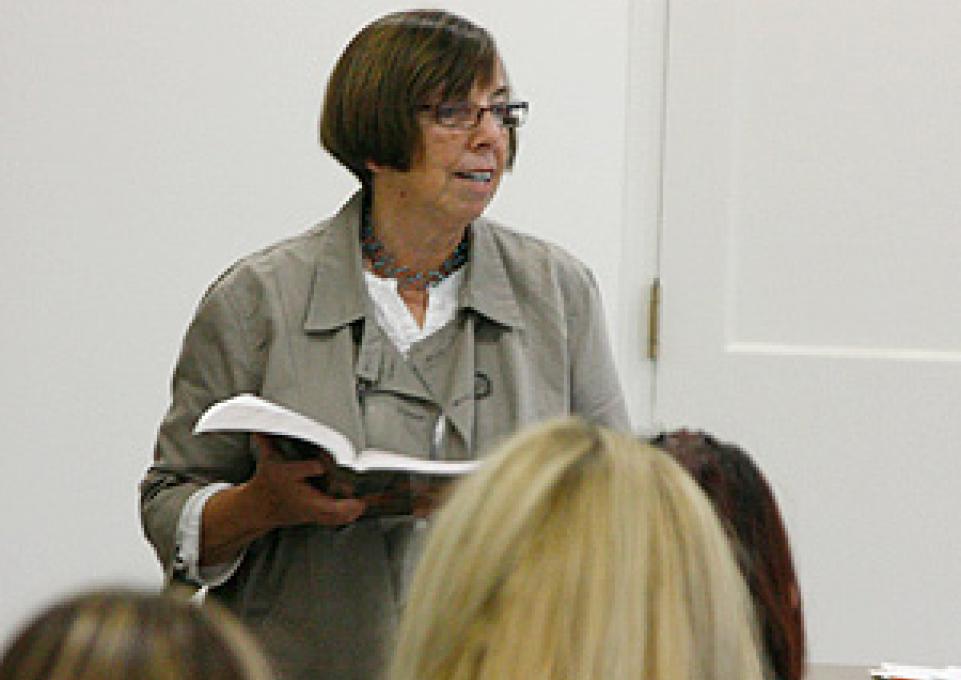
SUNY Distinguished Professor Ann Colley will take part in MusicalFare’s “Talk About” event tonight, September 29, following the company's production of Oliver! (ending at approximately 9:30 p.m.).
The panel discussion is free. Tickets to the performance may be purchased by calling MusicalFare Theatre's box office at (716) 839-8540 or by ordering online at www.musicalfare.com.
Oliver! is based on the novel Oliver Twist by Charles Dickens. Colley recently returned from Cambridge University, UK, where she was a visiting fellow. She was investigating aspects of Victorian culture.
This show’s “Talk About” presentation is “Please Sir, I Want Some More,” a reference to one of the most famous lines from both the novel and the play. Oliver Twist, the main character, speaks up on behalf of children starving in a workhouse in England in the early 1800s, asking for a bit more food.
“Conditions were horrible,” said Colley. “In the novel, Oliver is born in a workhouse and sent to a baby farm. Baby farms were places where a woman took in orphans in exchange for money, and many of them died from neglect and starvation. When the children were old enough, they were sold into apprenticeships, where they had no protection against cruelty and no assurance of even the most meager food, clothing, and shelter.”
Colley explained that Dickens was appalled by the conditions of the poor in London, and he wrote Oliver Twist to expose the sordidness of their lives. Men, women, and children lived together in filthy, overcrowded shelters. Death by hanging was widespread at the time of the novel. “The chief peril for Oliver, in the novel,” said Colley, “is that he should be driven to a criminal life and to the gallows.”
Joining Colley in the panel discussion are Peter Siedlecki, professor of English at Daemen College; Randall Kramer, artistic/executive director of MusicalFare Theatre; and Chris Kelly, director of this production.
Kelly is a former student of Colley’s. “I took several classes with her,” said Kelly, “and they were fantastic.” Both he and Colley remember an assignment in which he had to give a presentation on another Dickens novel, Great Expectations. “I brought in some other actors,” said Kelly, “and we performed the two different endings to the novel.”
“It was wonderful,” said Colley. “And, because Dickens himself loved drama, I’m sure he would have enjoyed it.”
